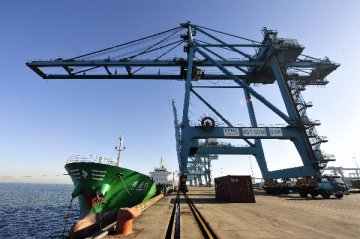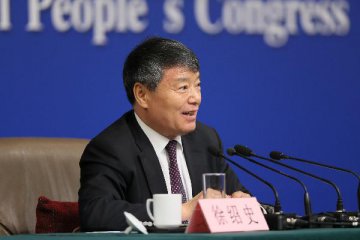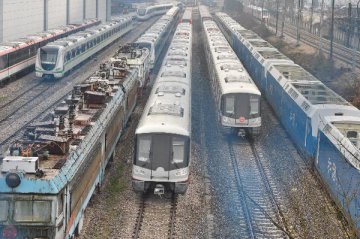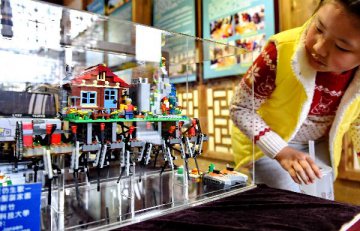
U.S. investors are bullish about the Chinese economy, as more opportunities have been created with the world's second largest economy going through a transition period. China's economy experiences different phases of its development cycle. It is now shifting its focus to consumption and service industries from polluting heavy industries and manufacturing via complex reforms.
Investors believed that the natural result of the transition is a lower yet sustainable and balanced growth, and it continues to create development opportunities for the world. During the transition, a significant portion of the growth will be based on domestic consumption. The model is changing from "simple mass consumption to higher consumption," said Michael Zakkour, author of "China's Super Consumers" and principal of Tompkins International where he heads the "China/APAC Group", whose business "has never been bigger."
Zakkour has more than 18 years' experience in international market strategy and implementation, primarily in China and Asia. He has assisted more than 250 multinational and SME companies in their assessment of opportunities in China, including some of the biggest names in retail, consumer products, technology, fashion and luxury.
Zakkour said, "The rest of the world is finally waking up to the idea that China is not just a place to go to make something but a place to go and sell something." The importance of the Chinese consumers is increasing not only to the Chinese economy but to the global economy, which is providing huge opportunities for companies and governments investing in China, Zakkour said.
Encouraged by continued rapid growth in people's income, improved social security and better supplies of goods, China's consumption expanded 10.7 percent year on year and contributed 66.4 percent to its economic growth in 2015, compared with 51 percent in 2014, according to the Chinese Ministry of Commerce. "As China moves from a developing economy to a middle-income economy and to a developed economy, there are going to be disruptions," said Zakkour.
However, where challenges lie, more opportunities lie ahead, he added. "Green technologies, clean energy, the opportunities to improve access within health care, there are just so many of them," he said.
Innovation, coordination, green development, opening up and sharing are the five cornerstones proposed by President Xi Jinping for China to secure resilient and sustainable growth. Looking into the next five years' development, investors are aware of China going global, and the economy is moving forward healthier and more balanced.
William Schulz, president of Ima Design, a Southern California-based landscape planning and design company, told Xinhua that "China is undergoing the economic transformation from manufacture to service. Sustainability is very important." Ima Design helped its client the Walt Disney Company to build the Shanghai Disneyland, and also helped many local governments in urban designs. "Through our business cooperation with our Chinese partners, we would like to use our experience to help China have a more sustainable social and economic development," said Schulz.
As president of the U.S. company Creative Arts & Attractions (CA&A), Kunxiong Lu believes that during China's economic transitional period, foreign countries like the U.S. have been and will be further benefited from China's increasing contribution to overseas investment. Composed of internationally-acclaimed professional ice carvers from the City of Harbin in China, the CA&A-sponsored Harbin Carving Team has wowed visitors with the holiday attraction "Ice Land", which greatly boosted the tourism development in Galveston Island on the Texas Gulf Coast during the past two years.
Foreign investment in China reached a record of 126 billion U.S. dollars in 2015, according to official data from the Ministry of Commerce. Nearly 24,000 foreign-funded enterprises have been founded during the first 11 months of 2015, an 11 percent increase from the same period of 2014. Voices concerning China's economy like "hard landing" and "collapse" were often heard, but they have all been dumb in front of the solid economic performance.
The Government Work Report, delivered on Saturday by Chinese Premier Li Keqiang at the opening meeting of the annual session of China's National People's Congress, the country's top legislature, has set a target of 6.5-7 percent for the 2016 economic growth, with the average annual growth rate for the next five years at above 6.5 percent.
























Latest comments